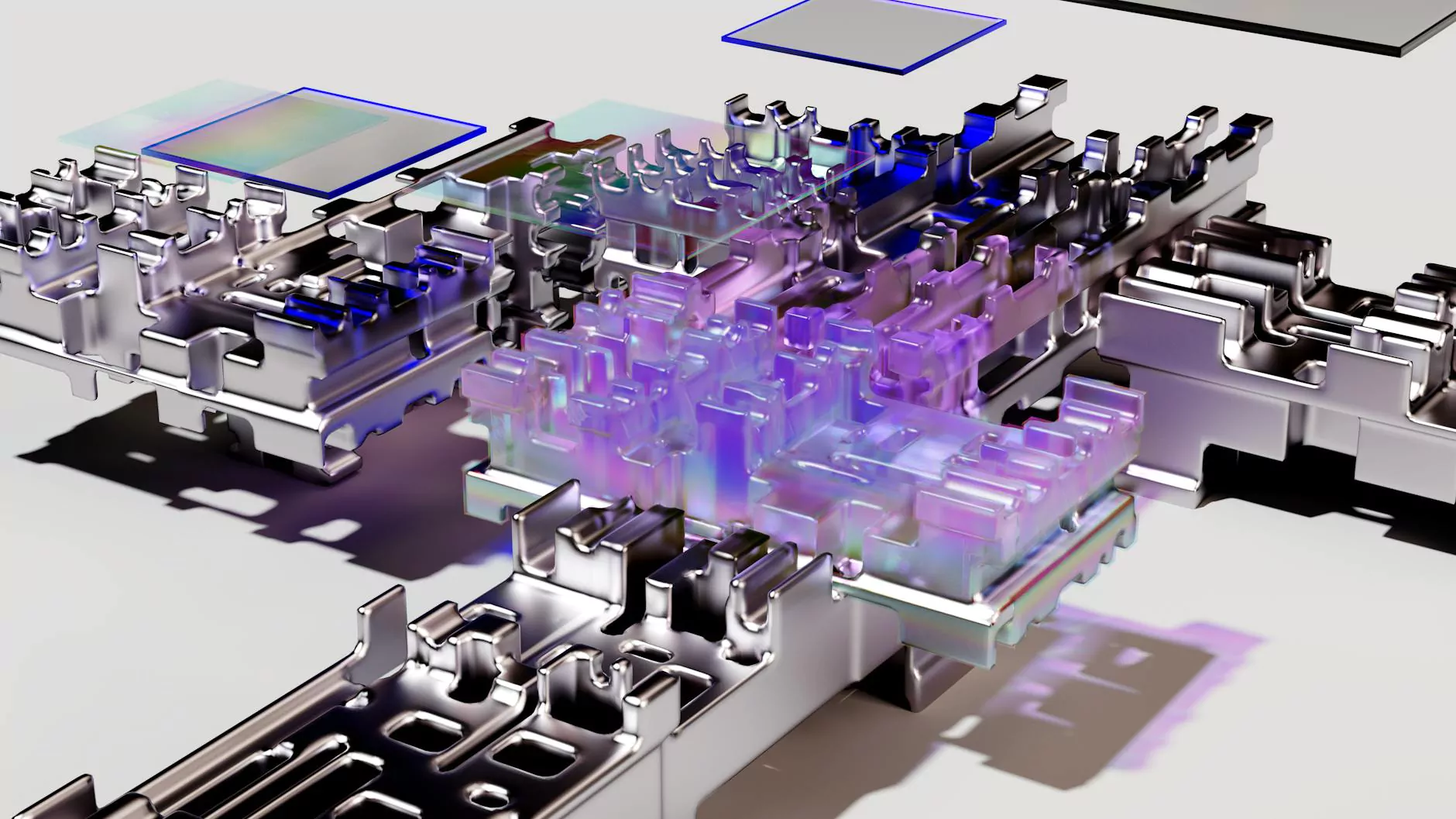Unlocking Potential with Expert Therapy for ADHD: A Complete Guide by Limbic Flow

Attention-Deficit/Hyperactivity Disorder (ADHD) is a neurodevelopmental condition that affects millions worldwide, impacting attention, impulse control, and hyperactivity. While often diagnosed in childhood, ADHD persists into adulthood for many, influencing various aspects of personal, academic, and professional life. The importance of comprehensive therapy for ADHD cannot be overstated in managing symptoms, improving organizational skills, and fostering emotional resilience. At Limbic Flow, we specialize in innovative mental health interventions tailored specifically for individuals with ADHD, helping them unlock their full potential.
Understanding ADHD: Beyond Stereotypes and Myths
Before diving into therapy options, it’s crucial to understand what ADHD truly entails. It’s not simply a matter of being distractible or hyperactive; ADHD is a complex neurobiological condition characterized by a dysregulation of the brain’s executive functions. These core functions include attention regulation, impulse control, motivation, working memory, and emotional regulation.
- Variability in Symptoms: ADHD manifests differently among individuals, with some experiencing predominantly inattentive symptoms, others primarily hyperactive-impulsive behaviors, and many with combined presentations.
- Neurotransmitter Role: Dysregulation of dopamine and norepinephrine pathways plays a significant role in the development and persistence of ADHD symptoms.
- Co-Existing Conditions: Anxiety, depression, learning disabilities, and emotional dysregulation frequently coexist with ADHD, complicating diagnosis and treatment.
The Significance of Professional Therapy for ADHD
While medication can be a vital component of ADHD management, therapy for ADHD offers a holistic approach targeting behavioral, emotional, and cognitive aspects. Combining therapy with medication often yields the most effective results, providing a comprehensive framework for sustainable improvement.
Therapeutic interventions can:
- Help individuals develop coping strategies suited to their unique challenges
- Improve organizational and time-management skills
- Address emotional struggles such as frustration, low self-esteem, and anxiety
- Enhance social skills and interpersonal relationships
- Support long-term behavioral change and resilience building
Types of Therapy for ADHD: Tailored Approaches for Diverse Needs
1. Cognitive Behavioral Therapy (CBT) for ADHD
CBT is one of the most researched and effective therapeutic approaches for ADHD. It focuses on modifying negative thought patterns and teaching practical skills to manage symptoms. In the context of ADHD, CBT helps individuals recognize maladaptive behaviors and develop strategies to redirect their attention, control impulses, and reduce impulsivity.
- Behavioral Techniques: Using reinforcement strategies to encourage positive behaviors
- Problem-Solving Skills: Enhancing decision-making and planning capabilities
- Emotional Regulation: Managing frustration, anger, and anxiety
- Self-Monitoring: Developing awareness of behavior patterns for ongoing management
2. Mindfulness-Based Interventions
Mindfulness practices teach individuals to stay present and cultivate awareness of their thoughts and feelings without judgment. Evidence suggests that mindfulness can significantly reduce distractibility and improve emotional stability in adults with ADHD. Techniques include meditation, breathing exercises, and body scans.
Practicing mindfulness regularly can foster greater impulse control and diminish stress, often exacerbating ADHD symptoms when unmanaged.
3. Psychoeducation and Skills Training
Explanatory therapy sessions empower individuals with knowledge about ADHD, demystifying the condition and reducing stigma. Skills training focuses on organizing daily routines, time management, goal setting, and developing routines that foster independence and confidence.
- Time Management Workshops
- Organizational Skills Coaching
- Sleep Hygiene Education
- Healthy Lifestyle Strategies
4. Family and Group Therapy
Engagement of family members or peer groups offers support networks crucial for sustainable management. Family therapy can address dynamics impacted by ADHD, improve communication, and build understanding.
Why Choose Limbic Flow for Therapy for ADHD? A Unique Approach
At Limbic Flow, we take pride in offering personalized mental health services that blend the latest neuropsychological insights with compassionate care. Our approach emphasizes understanding the unique neurobiological profile of each individual, tailoring interventions that address specific needs, strengths, and challenges.
Our core principles include:
- Holistic Assessment: Conducting comprehensive evaluations to identify underlying factors influencing ADHD symptoms.
- Innovation in Techniques: Integrating neurofeedback, mindfulness, cognitive restructuring, and behavioral strategies.
- Collaborative Care: Working closely with clients, families, educators, and medical providers to create cohesive treatment plans.
- Focus on Self-Discovery: Empowering clients to understand their own mind and develop self-efficacy.
Successful Outcomes with Therapy for ADHD: Real-Life Transformations
Numerous individuals undergoing professional therapy experience profound changes. These include increased concentration, improved social interactions, better emotional regulation, and higher overall life satisfaction. Our clients consistently report feeling more in control of their behaviors and more optimistic about their future.
Some measurable benefits of effective therapy include:
- Reduced impulsivity and hyperactivity
- Enhanced academic and occupational performance
- Stronger relationships with family, friends, and colleagues
- Greater self-esteem and confidence
- Improved emotional resilience and stress management skills
Implementing a Long-Term Strategy for Managing ADHD
Managing ADHD is a continuous process that involves more than sessions with a therapist. It requires a commitment to lifestyle modifications, ongoing skill development, and regular monitoring of progress. Key elements include:
- Consistent therapy sessions tailored to evolving needs
- Combining medication with behavioral strategies for best results
- Developing supportive routines and environment adjustments
- Continuous education on ADHD and personal growth
How to Get Started with Expert Therapy for ADHD at Limbic Flow
Embarking on a journey toward better management of ADHD symptoms begins with a thorough assessment and personalized treatment plan. At Limbic Flow, our mental health professionals are committed to guiding you through every step, ensuring a supportive and effective therapeutic process.
Visit our website or contact us directly to learn more about our services, schedule an initial consultation, and begin your path towards greater clarity, control, and fulfillment.
Conclusion: Embrace a Future of Possibilities with Dedicated Therapy for ADHD
Living with ADHD presents unique challenges, but with the right support and therapeutic strategies, it's entirely possible to thrive. Whether you are an adult seeking to enhance your focus and emotional regulation, or a parent wanting to support your child's development, professional therapy for ADHD is a transformative tool that can unlock your potential.
At Limbic Flow, our comprehensive, evidence-based approach ensures that every individual receives care tailored to their needs, paving the way for a brighter, more organized, and fulfilled life.









